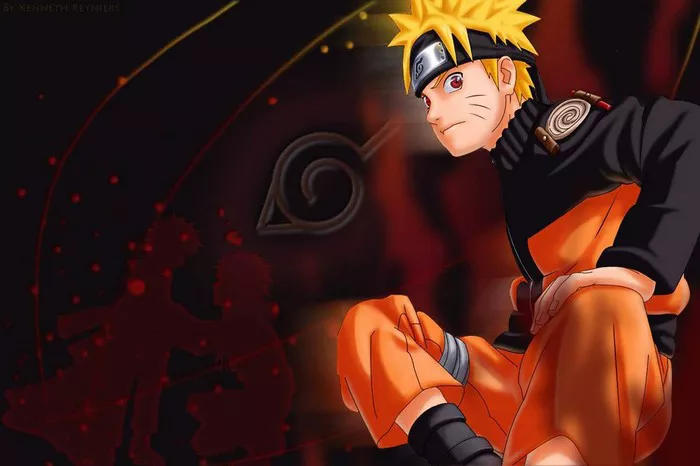Naruto Uzumaki, the titular character of Masashi Kishimoto’s renowned manga and anime series, “Naruto,” is an iconic figure in the realm of shonen protagonists. Known for his indomitable spirit, unwavering determination, and immense power, Naruto’s journey from a novice ninja to the Hokage of the Hidden Leaf Village has captivated millions of fans worldwide. However, keen observers have noted a perceived decline in Naruto’s abilities in the sequel series, “Boruto: Naruto Next Generations.” This article delves into the multifaceted reasons behind Naruto’s apparent weakening, exploring both narrative developments and thematic elements.
The Burden of Leadership: Hokage Responsibilities
As Naruto ascended to the prestigious position of Hokage, the leader of the Hidden Leaf Village, his priorities shifted dramatically. No longer solely focused on personal growth and combat prowess, Naruto’s duties expanded to governance, diplomacy, and the overall well-being of his village. Such responsibilities demanded a considerable portion of his time and energy, leaving less room for intensive training and honing his combat skills. Consequently, Naruto’s progression as a warrior stagnated, leading to a relative decline in his power compared to his peak during the Fourth Great Ninja War.
Family First: Naruto’s Role as a Father
The transition from a carefree youth to a responsible father profoundly impacted Naruto’s lifestyle and priorities. Balancing his duties as Hokage with his role as a parent to Boruto and Himawari necessitated compromises in his training regimen. Naruto’s commitment to spending quality time with his family often took precedence over rigorous combat exercises, contributing to his perceived decline in strength. Furthermore, the emotional toll of familial responsibilities may have affected Naruto’s mindset during battles, potentially undermining his combat effectiveness.
Sealing of Kurama: Loss of a Powerhouse
One of Naruto’s most significant sources of power was his symbiotic relationship with Kurama, the Nine-Tailed Fox spirit sealed within him since infancy. However, in a pivotal moment during the “Boruto” series, Naruto sacrifices Kurama to protect the village from a formidable threat, resulting in the fox’s demise. This loss not only deprived Naruto of Kurama’s formidable chakra reserves and combat prowess but also severed a vital emotional bond. The absence of Kurama’s influence left Naruto vulnerable and weakened, as he struggled to adapt to life without his longtime companion and source of strength.
Natural Decline: Aging and Physiological Limitations
Despite his status as a formidable ninja, Naruto is not immune to the effects of aging and physiological limitations. As years passed, Naruto’s body inevitably underwent changes, potentially diminishing his physical prowess and recovery capabilities. The toll of numerous battles and injuries sustained throughout his career may have also taken a cumulative toll on Naruto’s overall stamina and combat endurance. While still formidable by most standards, Naruto’s advancing age likely contributed to his perceived decline in power compared to his youthful prime.
Plot Dynamics and Narrative Necessity
From a storytelling perspective, Naruto’s apparent weakening serves several crucial narrative functions within the “Boruto” series. Firstly, it introduces new conflicts and challenges for both Naruto and the next generation of shinobi, compelling them to overcome adversity and forge their paths. Secondly, Naruto’s vulnerabilities humanize his character, showcasing his flaws and vulnerabilities alongside his strengths. This adds depth to his portrayal and fosters audience empathy, as viewers witness Naruto’s struggles and setbacks. Lastly, Naruto’s diminished power sets the stage for character development and growth, as he grapples with his limitations and seeks alternative means to protect his loved ones and uphold his ideals.
Adaptation and Evolution: Naruto’s Resilience
Despite facing numerous obstacles and setbacks, Naruto’s resilience and determination remain unwavering. Rather than succumbing to despair or resignation, Naruto embraces his newfound challenges as opportunities for growth and self-discovery. He adapts his strategies and approaches to compensate for his perceived weaknesses, relying on cunning, teamwork, and unconventional tactics to overcome formidable adversaries. Furthermore, Naruto serves as a mentor and source of inspiration for the next generation of shinobi, imparting invaluable lessons learned from his experiences and imparting the importance of perseverance and camaraderie.
Conclusion
In conclusion, Naruto Uzumaki’s perceived weakening in the “Boruto” series is a multifaceted phenomenon rooted in narrative developments, thematic elements, and character dynamics. As he assumes the mantle of Hokage and navigates the complexities of parenthood, Naruto faces unprecedented challenges that test his resolve and adaptability. The loss of Kurama, aging, and shifting priorities all contribute to Naruto’s apparent decline in power compared to his prime. However, Naruto’s resilience, resourcefulness, and unwavering spirit continue to define him as a legendary figure in the world of ninja, inspiring generations to come with his enduring legacy of courage and determination.


